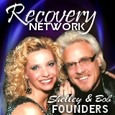Bipolar disorder, also known as manic-depressive illness, is a brain disorder that causes unusual shifts in a person’s mood, energy, and ability to function.
Different from the normal ups and downs that everyone goes through, the symptoms of Bipolar are severe. They can result in damaged relationships, poor job or school performance, and even suicide.
But there is good news: Bipolar disorder can be treated, and people with this illness can lead full and productive lives.
About 5.7 million American adults or about 2.6 percent of the population age 18 and older in any given year, have BP disorder.
Bipolar disorder typically develops in late adolescence or early adulthood. However, some people have their first symptoms during childhood, and some develop them late in life.
It is often not recognized as an illness, and people may suffer for years before it is properly diagnosed and treated. Like diabetes or heart disease, BP disorder is a long-term illness that must be carefully managed throughout a person’s life.
What Are the Symptoms of Bipolar Disorder?
Bipolar disorder causes dramatic mood swings—from overly "high" and/or irritable to sad and hopeless, and then back again, often with periods of normal mood in between.
Severe changes in energy and behavior go along with these changes in mood. The periods of highs and lows are called episodes of mania and depression.
A manic episode is diagnosed if elevated mood occurs with three or more of the other symptoms most of the day, nearly every day, for 1 week or longer. If the mood is irritable, four additional symptoms must be present.
It may be helpful to think of the various mood states in BP disorder as a spectrum or continuous range. At one end is severe depression, above which is moderate depression and then mild low mood, which many people call “the blues” when it is short-lived but is termed "dysthymia" when it is chronic.
Then there is normal or balanced mood, above which comes hypomania (mild to moderate mania), and then severe mania.
In some people, however, symptoms of mania and depression may occur together in what is called a mixed bipolar state.
Symptoms of a mixed state often include agitation, trouble sleeping, significant change in appetite, psychosis, and suicidal thinking. A person may have a very sad, hopeless mood while at the same time feeling extremely energized.
BP disorder may appear to be a problem other than mental illness—for instance, alcohol or drug abuse, poor school or work performance, or strained interpersonal relationships.
Do Other Illnesses Co-occur with Bipolar Disorder?
Alcohol and drug abuse are very common among people with bipolar disorder.
Research findings suggest that many factors may contribute to these substance abuse problems, including self-medication of symptoms, mood symptoms either brought on or perpetuated by substance abuse, and risk factors that may influence the occurrence of both BP disorder and substance use disorders.
Treatment for co-occurring substance abuse, when present, is an important part of the overall treatment plan.
Anxiety disorders , such as post-traumatic stress disorder and obsessive-compulsive disorder, also may be common in people with bipolar disorder.
Co-occurring anxiety disorders may respond to the treatments used for bipolar disorder, or they may require separate treatment.
There are four types of mood episodes that can occur in bipolar disorder, each with a unique pattern of symptoms:
- Mania
- Hypomania
- Depression
- Mixed episode
Triggers and Risk Factors for Bipolar Disorder
Research indicates that some people are genetically predisposed to bipolar disorder. But not everyone with an inherited vulnerability develops the illness, indicating that external factors also play a role. These external risk factors are called triggers.
Triggers can set off a bipolar disorder or prolong an existing mood episode. Many episode of mania or depression occur, however, without an obvious trigger.
To read more about Bipolar Disorder, click LINK below:
http://www.drug-alcohol-addiction-recovery.com/BiPolar-Disorder.html
Robert Jakobsen is the founder of the RECOVERY NETWORK. A website dedicated to helping people recover from drug and alcohol addictions. Mr. Jakobsen has battled drug and alcohol addiction for 25-years and today he lives happy, joyous and free, one day at a time.
He has written (5) ebooks on recovery and has created a 12-Step VIDEO recovery program.

Post new comment
Please Register or Login to post new comment.